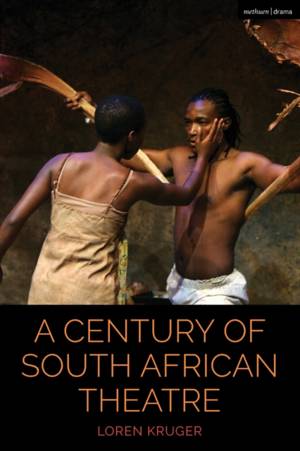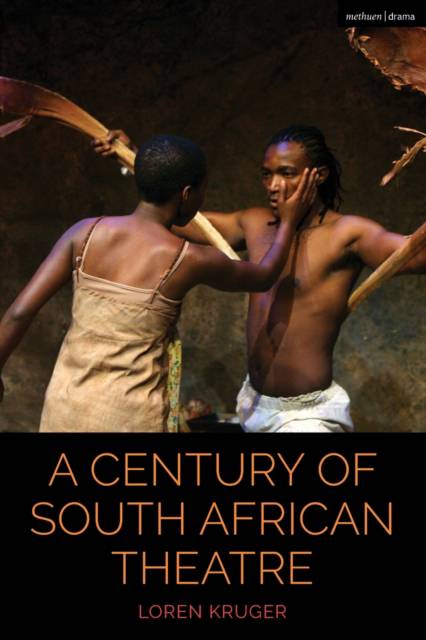
- Retrait gratuit dans votre magasin Club
- 7.000.000 titres dans notre catalogue
- Payer en toute sécurité
- Toujours un magasin près de chez vous
- Retrait gratuit dans votre magasin Club
- 7.000.0000 titres dans notre catalogue
- Payer en toute sécurité
- Toujours un magasin près de chez vous
Description
"Theatre is not part of our vocabulary" Sipho Sepamla's provocation in 1981, the year of famous anti-apartheid play Woza Albert!, prompts the response, yes indeed, it is. A Century of South African Theatre demonstrates the impact of theatre and other performances-pageants, concerts, sketches, workshops, and performance art-over the last hundred years. Its coverage includes African responses to pro-British pageants celebrating white Union in 1910, such as the Emancipation Centenary of the abolition of British colonial slavery in 1934 organized by Griffiths Motsieloa and HIE Dhlomo, through anti-apartheid testimonial theatre by Athol Fugard, Maishe Maponya, Gcina Mhlophe, and many others, right up to the present dramatization of state capture, inequality and state violence in today's unevenly democratic society, where government has promised much but delivered little.
Building on Loren Kruger's personal observations of forty years as well as her published research, A Century of South African Theatre provides theoretical coordinates from institution to public sphere to syncretism in performance in order to highlight South Africa's changing engagement with the world from the days of Empire, through the apartheid era to the multi-lateral and multi-lingual networks of the 21st century. The final chapters use the Constitution's injunction to improve wellbeing as a prompt to examine the dramaturgy of new problems, especially AIDS and domestic violence, as well as the better known performances in and around the Truth and Reconciliation Commission. Kruger critically evaluates internationally known theatre makers, including the signature collaborations between animator/designer William Kentridge, and Handspring Puppet Company, and highlights the local and transnational impact of major post-apartheid companies such as Magnet Theatre.
Building on Loren Kruger's personal observations of forty years as well as her published research, A Century of South African Theatre provides theoretical coordinates from institution to public sphere to syncretism in performance in order to highlight South Africa's changing engagement with the world from the days of Empire, through the apartheid era to the multi-lateral and multi-lingual networks of the 21st century. The final chapters use the Constitution's injunction to improve wellbeing as a prompt to examine the dramaturgy of new problems, especially AIDS and domestic violence, as well as the better known performances in and around the Truth and Reconciliation Commission. Kruger critically evaluates internationally known theatre makers, including the signature collaborations between animator/designer William Kentridge, and Handspring Puppet Company, and highlights the local and transnational impact of major post-apartheid companies such as Magnet Theatre.
Spécifications
Parties prenantes
- Auteur(s) :
- Editeur:
Contenu
- Nombre de pages :
- 288
- Langue:
- Anglais
- Collection :
Caractéristiques
- EAN:
- 9781350008014
- Date de parution :
- 28-11-19
- Format:
- Livre broché
- Format numérique:
- Trade paperback (VS)
- Dimensions :
- 140 mm x 216 mm
- Poids :
- 498 g

Les avis
Nous publions uniquement les avis qui respectent les conditions requises. Consultez nos conditions pour les avis.






